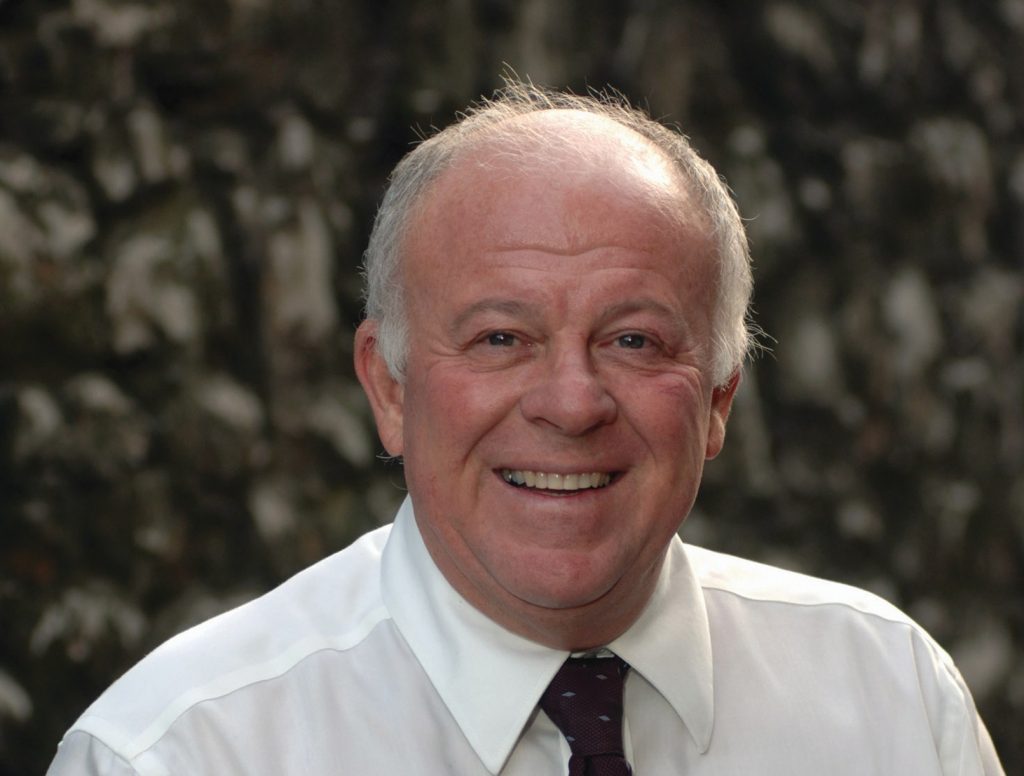What do you do when you’ve stepped away from a FTSE 100 listed investment firm valued at around £9 billion you set up and have run for nearly four decades?
Evidently, you set up another one.
That’s what Peter Hargreaves the co-founder of Hargreaves Lansdown has done with Blue Whale Capital.
Sometimes doing these interviews can be a bit of a mission. Sometimes it takes months, sometimes we get sent some drivel knocked up by a PR department (which is sent back). Sometimes we email, chat on the phone, meet up, or have lunch, but invariably they take a little time to organise.
But, when we spoke to Peter Hargreaves it was about twenty minutes after I’d pinged off an email to Blue Whale Capital asking for an interview. I’d like to think it’s because we are so well connected as I once supplied bond data and charts to HL when I was running fixedincomeinvestor.co.uk. Or because I once pitched Blue Whale’s Chief Investment Office (then at Artemis) our long/short and long-only product when I was at Investors Intelligence.
However, I suspect, it was much more likely to be (as you will read when Peter explains his investment strategy) that, if Peter is going to do something, he just gets on and does it.
Here’s what Peter Hargreaves had to say when we chatted on the phone last week about why they set up Blue Whale Capital and how they approach the markets.
So Blue Whale Capital, why did you set it up and who’s it for?
Well Stephen Yiu worked for me, I think about 15 years ago, and he was easily one of the most able and conscientious employees I ever had, but at Hargreaves Lansdown, in those days, we couldn’t offer him fund management. We didn’t do it.
He was very good on the IT side, and also, he was very good on researching other people’s investment funds. He came to me one day and he said, “Look, I love working here but I actually want to manage money.” So we actually found him a job and then he worked in various places. But we always kept in contact, which was really quite nice. We probably met up once every 18 months, something like that. We exchanged phone calls and Christmas cards and things like that.
A couple of years ago, he was keen to set up, and I was also keen for a new approach to invest some of my family money. There were several things in the equation, and he was talking the language that I wanted to hear.
We believe that most British fund managers and wealth managers are very, very shy about investing in America. And I was very keen to invest in America. I said, “Nearly every single UK portfolio of various investments is underweight the most entrepreneurial economy in the world,” and I said, “I am no fan of Donald Trump but the one thing that is good about him is he understands what makes businesses tick,” and I said, “I think he will good for US equities.”
So we went down the road of authorising a fund, and he recruited a team. I can’t believe the team he’s recruited. They are so damn good, so conscientious. And his philosophy was quite simple
There’s hundreds of companies that are good in the world, and there’s a huge amount of advice on what companies you should put your money in, but to be honest, there are only a few that tick the essential boxes.
- Number one, they’ve got to have fantastic management and they’ve got to be very honest management.
- They’ve also got to be in a business that has either a niche or a growing part of the market.
- And finally, you have to choose companies, not only on all the criteria that you want to invest in, you have to evaluate the share price. Because any fool can buy companies when the company is growing. But the share price is normally at a level where you’re going to have to wait a long time to make a profit, i.e. of the share prices, at the very top end of its range. Sometimes, it’s overpriced.
So we, at Blue Whale, we have a view on all the companies in which we invest, on what we think the share price should be.
If the share price is greater than that, we keep our eye on it, and if at some stage it comes out of favour and we still like the company, then we’ll invest in it.
If the share price is there or thereabouts, again, we think well, there may be better opportunities than that.
So we’re looking for ones that are substantially priced lower than we value them at.
And that’s essential for two reasons.
When you’re investing in a great company and the share price has gone up, how do you make the next decision? Is that it? Should we be keeping it? Should we be buying more, or should we be selling it?
But if you’ve actually appraised what you think the share price should be, and you constantly appraise that, then in six months down the road, they’ve had another couple of results, and you think actually, the share price should be higher again, well you can stay with it.
If you think the share price has done all it should do, then you have great evidence of when you should sell, and you can look at all the shares you’re looking at and say, well, actually, we think these two or three other shares offer more prospects now than this one.
So that’s basically the Blue Whale philosophy. It’s very hard work. The guys are in at seven every morning. And it’s paid dividends. I mean, that fund has beaten everything in sight.
Who can invest in the fund? Is it for institutions or open to anyone?
Anybody. You can invest directly through Blue Whale and it’s on all the major platforms now.
What would you say have been the best moments of being involved in Blue Whale Capital?
Well, I think the best moment has been as we’ve watched how well it’s performed. I mean it’s just been a thrill to see how well the stocks we’ve chosen have done. And of course, you know, that’s reflected in the unit price of the fund, and it’s been a thrill.
And the the worst?
I think the thing that has been disappointing is that, as I’ve stated elsewhere, because of the regime that the financial services industry works in, people are very reticent to recommend something that’s new.
And I understand that. If you recommend a fund that’s been a top performer, then if it doesn’t do terribly well, you can turn round and say, well actually, it had done very well in the past.
Of course, with a new fund, you haven’t got that comfort. But I think the people who’ve actually taken the trouble to come and look at the process of Blue Whale, they’ve all been terribly impressed.
I’ve had presentations from teams on various companies – Adobe was one I remember terribly well – and how they explained why they thought Adobe was going to do better than consensus. They thought that the chief executive was cautious, i.e. he always understated what he thought the company would do, and this, that and the other. Of course, it was the ideal company to invest in. The share price was below where we thought it would be. The consensus of how the company was going to go was lower than we thought it was going to be. And the chief executive never tried to get his price up. He never says anything to try and improve the price. And of course, he’s a very, very capable, cautious guy, and that’s exactly what I like.
I’ve always had this saying in business:
Optimists fail, pessimists prevail.
It’s so true. Companies like that are good news, and of course, the rest is history.
We wanted to do something different with the family money. We wanted to put it somewhere where we thought the process was more rigorous and different than anywhere else. And of course, we’re delighted we’ve done that.
And finally, if you could give one bit of advice to investors on strategy. What would you say is the key element to being a successful investor in the markets?
Don’t try to time market.
I always think time, is more important than timing.
If you’ve chosen an investment that you think’s good, buy it. Because if you wait, it’ll go up and you’ll think, oh, it’s gone up. But if it goes down, you think, oh, I’m going to wait until it goes down more. Once you’ve decided to buy it, buy it, because time is far more important than timing.
I have one further point, and this point is really, really important.
A lot of the funds that are being promoted by the industry as a whole are arguably very good funds, but they are managed by very elderly gentlemen.
Lots of the fund managers that people invest in are around 60. Some just below and some just above, and some quite a lot above. And the trouble is, whilst funds don’t pay capital gains tax. If that fund manager retires, what do you do, because if you sell it, you do pay capital gains tax, and you’ve no idea who’s going to follow.
Remember the Anthony Bolton fiasco when he retired? It was difficult for everyone, because what do you do? Who follows Anthony Bolton? Do you sell it and pay capital gains tax, or do you hope the next guy is going to be as good?
So investing in a young team, providing you’re sure they know what they’re doing, is great. I mean Stephen Yiu’s 40, so he’s going to be around for at least 20 years. So I’m not going to incur capital gains tax in that fund because I’ll never need to sell it.
Peter Hargreaves is Chairman of Blue Whale Capital.

Richard is the founder of the Good Money Guide (formerly Good Broker Guide), one of the original investment comparison sites established in 2015. With a career spanning two decades as a broker, he brings extensive expertise and knowledge to the financial landscape.
Having worked as a broker at Investors Intelligence and a multi-asset derivatives broker at MF Global (Man Financial), Richard has acquired substantial experience in the industry. His career began as a private client stockbroker at Walker Crips and Phillip Securities (now King and Shaxson), following internships on the NYMEX oil trading floor in New York and London IPE in 2001 and 2000.
Richard’s contributions and expertise have been recognized by respected publications such as The Sunday Times, BusinessInsider, Yahoo Finance, BusinessNews.org.uk, Master Investor, Wealth Briefing, iNews, and The FT, among many others.
Under Richard’s leadership, the Good Money Guide has evolved into a valuable destination for comprehensive information and expert guidance, specialising in trading, investment, and currency exchange. His commitment to delivering high-quality insights has solidified the Good Money Guide’s standing as a well-respected resource for both customers and industry colleagues.
You can contact Richard at richard@goodmoneyguide.com


